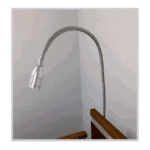A person in 4 seniors experience a tumble every year and virtually fifty percent of folks age sixty five or more mature sustaining a fall don't resume impartial living. Connecticut's homecare industry experts at Assisted Dwelling Solutions, Inc. (ALS) have found firsthand the threats to non-public safety that the elderly encounter each day in their unique houses. For the duration of Countrywide Falls Prevention Month in September, ALS is sharing techniques to create a Risk-free surroundings and employ new sensible house and private technologies.
"The unlucky actuality is the fact a number of our consumers are hospitalized following a moderate to serious harm and they are not able to return household," stated Mario D'Aquila, MBA, COO of Assisted Living Solutions, Inc. in Cheshire, Fairfield and Clinton. "We get the job done with people to avoid these accidents in the first place by providing a complimentary home basic safety evaluation at any residence in Connecticut.
D'Aquila explains a highly skilled senior household treatment professional makes use of an outstanding Assurance Checklist To guage the residing circumstance and establish regions of weak point, then can make suggestions for example reducing muddle and setting up hand rails, to proficiently decrease the risk of falls. Specific technological gadgets from sister firm Assisted Dwelling Technologies, Inc. (ALT) could also be proposed following completion in the analysis.
D'Aquila addresses the very best causes of falls and how to reduce them:
Slips and excursions may be prevented by carrying suitable footwear, wiping up spills and how to buy things to do in hospital bed cleansing extra messes, eliminating cords and dangers like scatter rugs, delivering satisfactory lighting at nighttime and applying lavatory basic safety devices properly.
Actual physical inactivity can in fact produce additional falls! Get involved in workout or actions that improve balance.
Remedies could have aspect-effects that may lead to falls such as blood pressure level, sedatives, diuretics, anti-depressants, and discomfort prescription drugs, need to be reviewed with a doctor, who may be able to make adjustments or provide assistance to reduce signs or symptoms contributing to a drop.

Bad vision may be prevented by getting an eye exam, prospective cataract surgical procedure, and keeping away from the use of multifocal glasses when ambulating.
Poor usage of assistive tools which include canes, walkers, wheelchairs and Many others. Make sure the individual is experienced to effectively and safely and securely use devices by their doctor or health-related gear specialist.